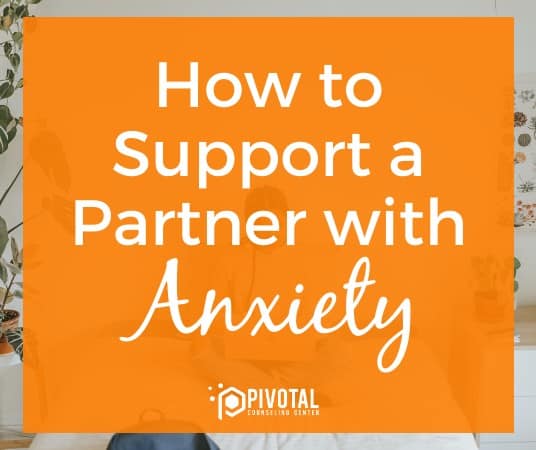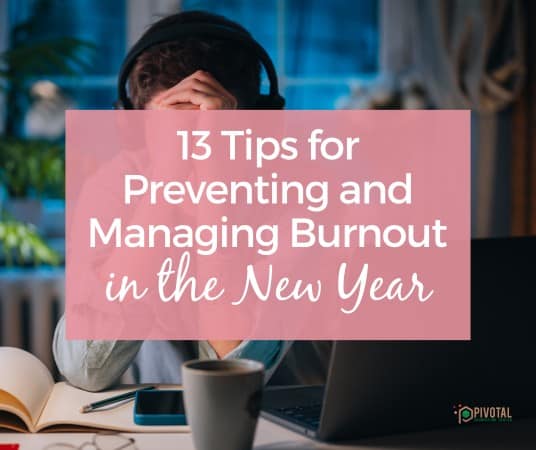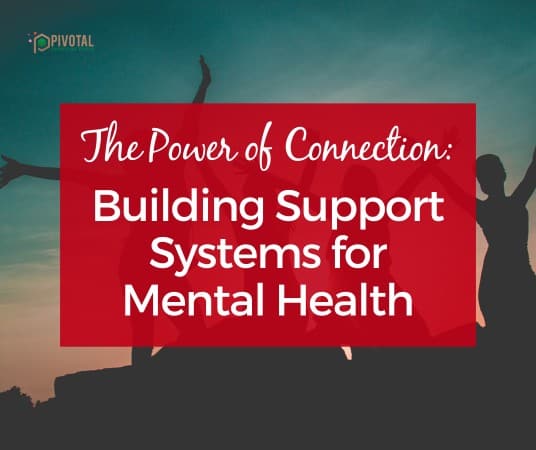
If your partner struggles with anxiety, you might not know the best way to support them, especially if it is something you have never experienced yourself!
To help, we put together this list of four key things to do to show your partner that you want to support them the best you can. Living with anxiety can be tough, stressful, and tiring, so having a supportive partner can make all the difference.
Here are four ways you can support your partner with anxiety:
Affirm your support before opening the conversation:
Why: Talking about how anxiety affects your daily life is a very vulnerable conversation–and many people who struggle with anxiety worry about feeling like a burden to those in their life. Let your partner know that you want to talk about it because you want them to feel safe and comfortable in your relationship, even when it comes to uncomfortable or difficult situations.
What you can say: “When you feel comfortable, I’d like to have a conversation about your anxiety. I want to be sure I’m doing everything I can to make you feel safe in this relationship, and that I’m fully understanding your experience so that I can be a better partner.”
Do your own research:
Why: Taking time to familiarize yourself with common symptoms of anxiety, and what it is generally can help you show up fully for your partner. They are an expert on their own experience, but they might not have all the answers to the questions you might have about anxiety in general. Taking time to learn on your own can show that you are taking their experience seriously, and help you better understand what they go through when they do take time to talk to you about it.
What you can say: “Hey, I’ve done a little reading on anxiety so I can understand it better, but I want to make sure I’m getting accurate info. Are there any resources you found helpful when you were diagnosed that I should check out?”
Ask about their experience with anxiety specifically:
Why: Like we said above, your partner is an expert in their own experience, not an expert in all things anxiety. And when trying to figure out how to best support your partner it is more important to hear about their specific experience with anxiety. It can show up differently in different people, so they may not experience it they way you think they do. Learning exactly what they go through will help you support them in a way that actually helps.
What you can say: “I’ve done a little reading on anxiety in general, but I’d like to learn about how you experience it, if you’re comfortable talking about it. If I know how it affects your life, I can be more mindful and supportive, in a way that is specific to you.”
Keep their experience in mind even when they don’t bring their anxiety up:
Why: It’s hard to constantly ask for accommodations. People feel a lot of shame or embarrassment when they can’t experience something the way “everyone else” does, so your partner may not want to bring up their anxiety at every turn. Pay attention to what they tell you about how they experience anxiety, and try to keep it in mind when making plans in the future. You don’t have to memorize every detail they tell you, but your partner will feel much more seen and cared for if they don’t have to constantly remind you that they experience something differently than you do, due to their anxiety.
What you can say: “My friend is having a game night, but I know that groups of new people and new places can make you anxious, so I asked who is going to come, and we know a lot of the people invited! Are you comfortable joining me? I can ask if we can show up a little early so we don’t have to walk into a crowd of new people when we get there!”
There is no one right way to support a partner with anxiety. The most important part is to ask them how you can best support them, and take that to heart. If you are looking for more guidelines on how to talk to your partner about mental health, check out our post on how to support a partner with depression.
Pivotal Counseling Center has therapists who specialize in depression, anxiety, and other mood disorders. We have locations in Woodstock, Illinois, and Lake in the Hills, Illinois. If you are in need of someone to help, please consider giving us a call at (815) 345-3400.
Pivotal Counseling Center is now accepting Medicaid including Blue Cross Community Medicaid, Meridian Medicaid, and Molina Medicaid for outpatient counseling.









